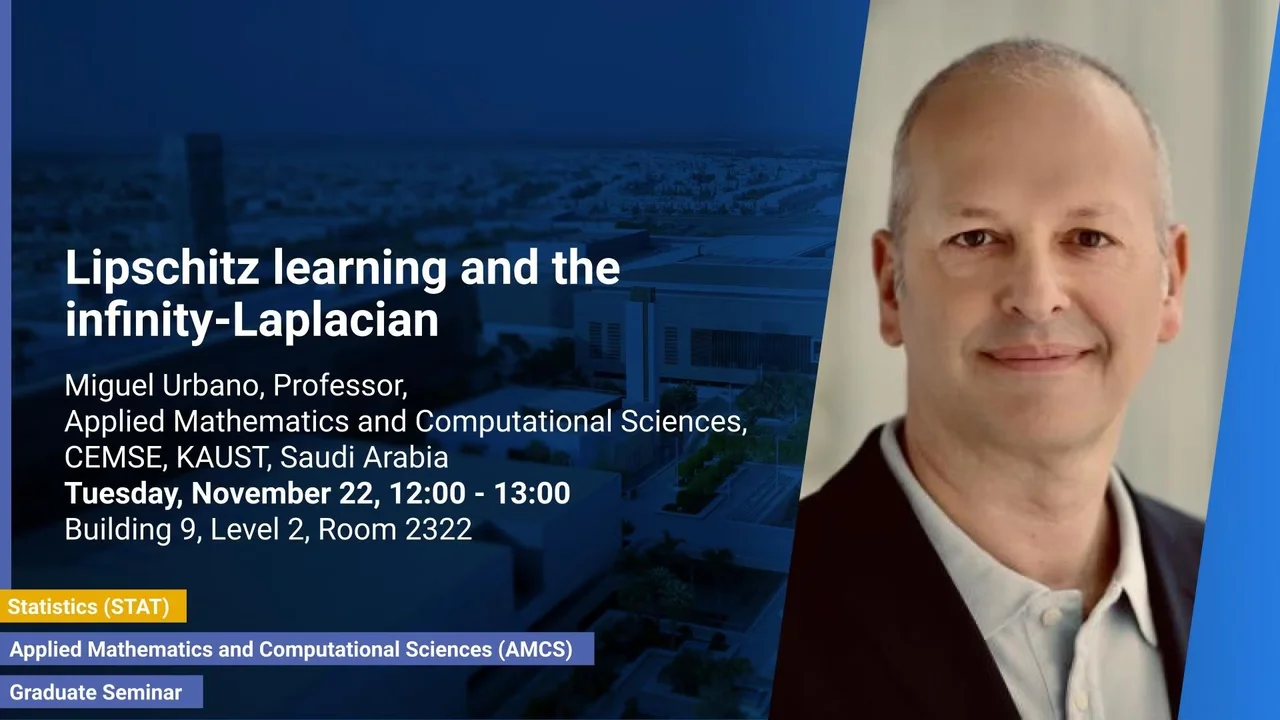
Lipschitz learning and the infinity-Laplacian
Infinity-harmonic functions have recently found application in Semi-Supervised Learning, in the context of the so-called Lipschitz Learning. With this application in mind, we will discuss the Lipschitz extension problem, its solution via MacShane-Whitney extensions and its several drawbacks, leading to the notion of AMLE (Absolutely Minimising Lipschitz Extension).
Overview
Abstract
Infinity-harmonic functions have recently found application in Semi-Supervised Learning, in the context of the so-called Lipschitz Learning. With this application in mind, we will discuss the Lipschitz extension problem, its solution via MacShane-Whitney extensions and its several drawbacks, leading to the notion of AMLE (Absolutely Minimising Lipschitz Extension). We then address the equivalence between being absolutely minimising Lipschitz, enjoying comparison with cones and solving the infinity-Laplace equation in the viscosity sense. If time permits, we will present a few regularity results and discuss open problems.
Brief Biography
Miguel Urbano received his PhD degree in Mathematical Analysis from the University of Lisbon in 1999. Before joining KAUST in 2022, he had been a Full Professor at the University of Coimbra since 2009. He is an expert on free boundary problems and on regularity theory for nonlinear PDEs, in particular, on the method of intrinsic scaling for equations of singular or degenerate type. He is the author of over 60 scientific papers in the area of nonlinear PDEs, a Corresponding Member of the Lisbon Academy of Sciences and Editor-in-Chief of Portugaliae Mathematica.